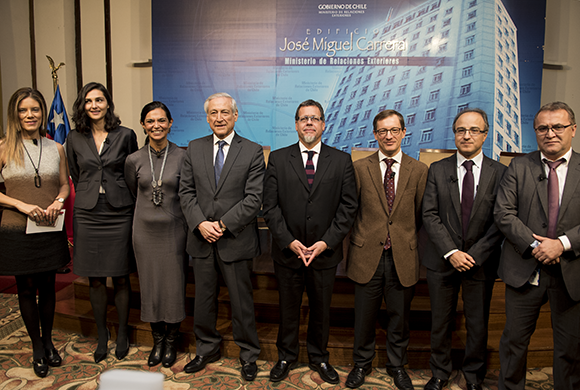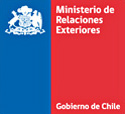
Foreign Minister Heraldo Muñoz led today a panel discussion entitled "International Economic Agreements and Human Rights: TPP, a case study". Representatives of trade unions, international organizations, companies and the academic sector, among other civil society organizations, attended the event, which was organized by the Chilean Ministry of Foreign Affairs.
The main objective of the meeting was to generate a dialogue around the link that exists between the negotiation of international economic agreements and the State's duty to protect and guarantee the human rights of citizens, knowing the implications and impacts that in this case, the Trans-Pacific Agreement (known as TPP) could generate on the population.
At the opening of the event, Foreign Minister Heraldo Muñoz stated that "trade liberalization has the objective of promoting economic development, job creation. However, it is clear that development must be built upon respect for human rights, an issue that has also been highlighted in the 2030 agenda adopted last year at the United Nations".
In this regard, the Minister affirmed that "the PPT, throughout its thirty chapters, collects and takes up the challenge of protecting the rights of individuals" and recalled that the twelve countries that signed the treaty agreed on a set of provisions that effectively aim to this end.
Speaking at the Round Table, DIRECON's Chief Negotiator of the PPT, Felipe Lopeandía, stressed that the treaty contains a series of provisions designed to strengthen and safeguard the regulatory capacity to implement countries' public policy objectives, which is also an important element in protecting human rights.
Also speaking at the forum were Ana Vohryzek, International Arbitration Consultant; Nancy Yañez, co-director of the Citizen Observatory; Manuel José Prieto, representative of the Manufacturers' Association (SOFOFA); and Claudio Urrutia, representative of the United Confederation of Workers (CUT). The day was concluded by Senate President Ricardo Lagos Weber.
TPP Background
The PPT is an ambitious plurilateral economic integration treaty in the most dynamic region of the 21st century: The Pacific Basin. It involves twelve countries: Australia, Brunei Darussalam, Canada, Chile, Malaysia, Mexico, Japan, New Zealand, Peru, Singapore, the United States and Vietnam.
This group of economies represents about 40% of the world economy, almost 40% of investments, and more than 25% of international trade, adding a potential market of more than 800 million consumers.
